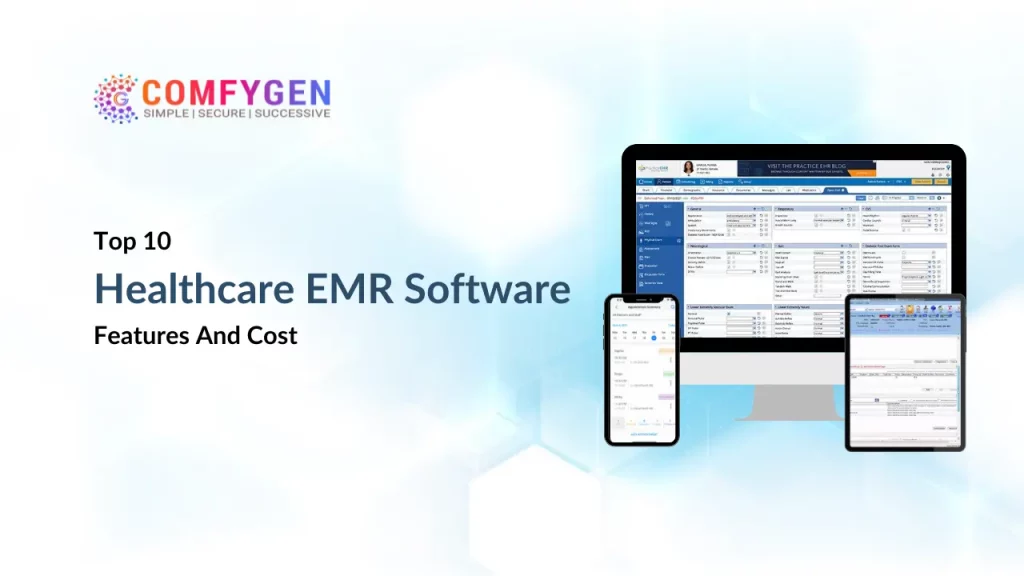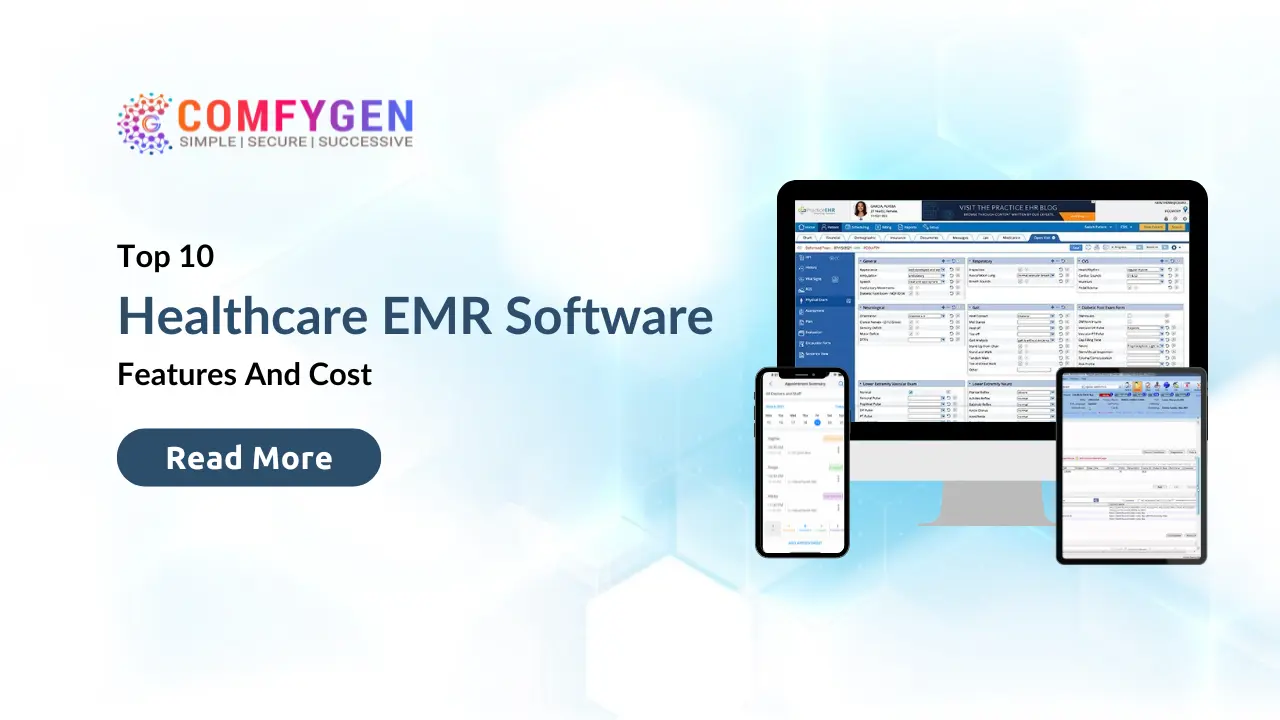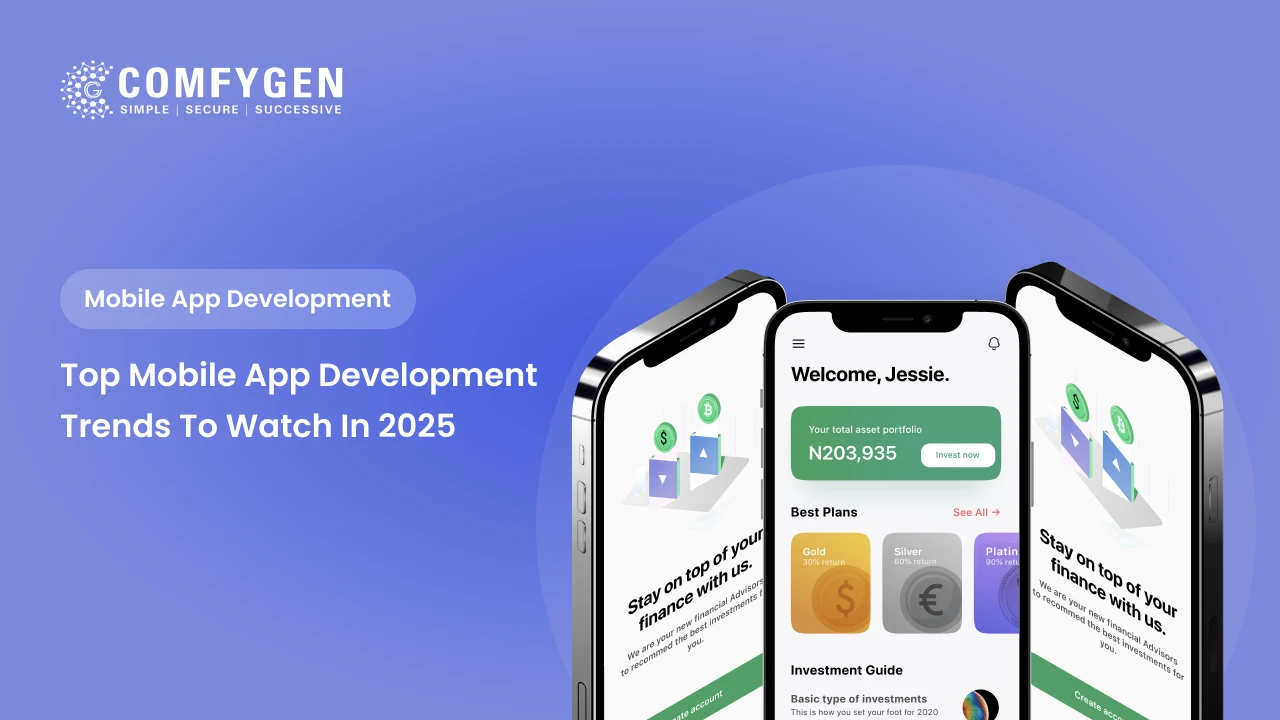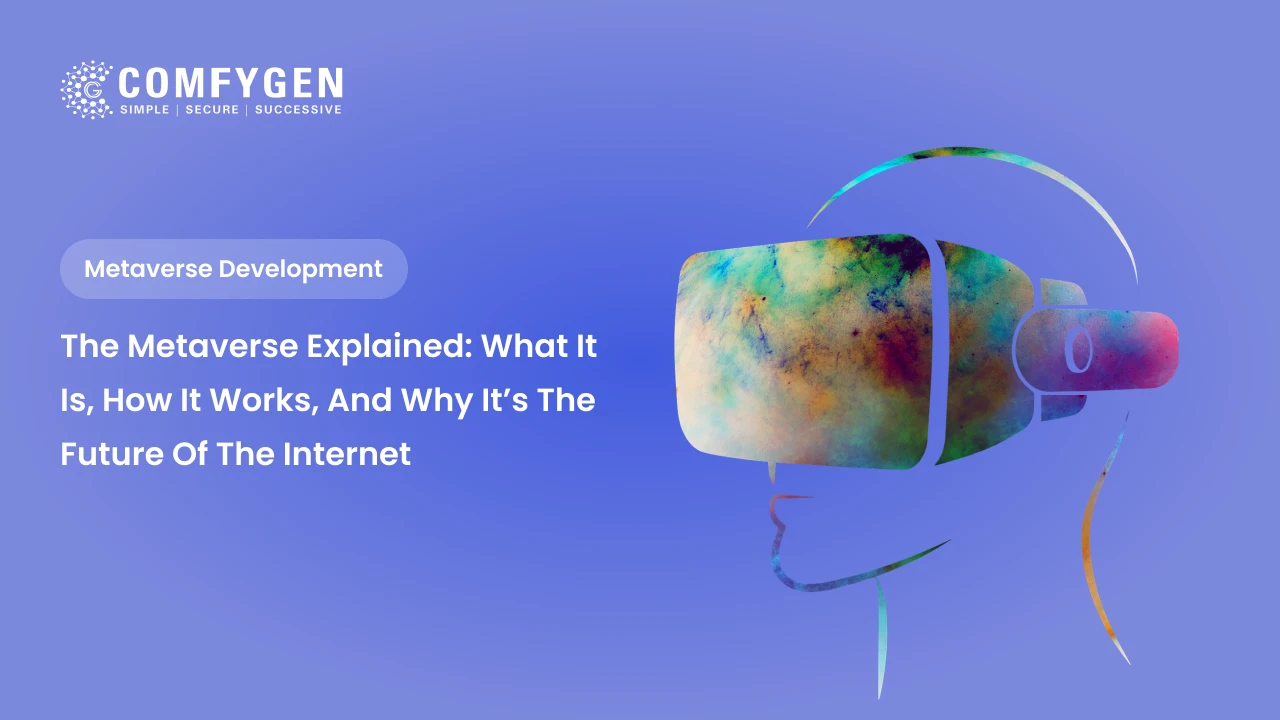Top 10 Healthcare EMR Software: Features And Cost

The healthcare industry around the world has increasingly invested in and developed electronic medical record (EMR) software platforms to enhance their business operations and provide better patient care. Electronic Medical Record (EMR) software plays a pivotal role in modern healthcare systems, providing a digital solution for managing patient data. EMR software systems help healthcare providers maintain accurate records, streamline workflows, and ensure patient safety.
With the digital health market expanding rapidly, the global EMR market is expected to reach USD 43.9 billion by 2027, growing at a CAGR of 6.1%. These systems are revolutionizing healthcare by streamlining patient data management, improving clinical workflows, and fostering better communication between healthcare providers.
If you’re considering implementing an EMR system, this blog will explore the list of top 10 EMR software in 2024, their features, and estimated development costs.
What is EMR Software?
EMR (electronic medical record) software is a digital tool used by healthcare providers to store and manage patient information electronically. This includes patient history, diagnoses, treatments, prescriptions, and appointment scheduling, making medical data more accessible and reducing paperwork. EMR systems help improve the quality of care by providing accurate and up-to-date information to doctors and staff, ensuring smooth workflow and better communication between healthcare teams.
Why EMR Software is Essential for Healthcare Providers and Patients
EMR software plays a vital role in modern healthcare by streamlining the management of patient records. For healthcare providers, it improves workflow efficiency by making it easy to access patient histories, prescriptions, and lab results in one place. This leads to faster decision-making and better care.
The EMR software also significantly benefits patients by enhancing communication with healthcare providers through the patient portal, allowing them to view their medical records, schedule appointments, and easily request prescription refills. Overall, EMR systems increase the efficiency, accuracy, and quality of care for everyone, making them a huge benefit for both patients and providers.
Benefits of Implementing EMR System for Small, Mid-size, and Large Practices
Implementing an EMR system offers numerous benefits for healthcare practices of all sizes. For small practices, it simplifies patient record management, reduces paperwork, and improves appointment scheduling. Medium-sized practices benefit from increased workflow efficiency, enhanced communication between departments, and seamless integration with billing and lab systems.
For larger practices, EMR systems provide robust data management, support, and advanced reporting tools for multiple providers. At all practice sizes, EMR systems enhance patient care, improve compliance with regulations, and streamline administrative tasks, making operations more efficient and cost-effective.
Top 10 EMR Software
The selection of an Electronic Medical Record (EMR) system can have a significant impact on the efficiency of healthcare practices and the quality of patient care. Below is a list of the top 10 EMR software systems, ranked by features, ease of use, and suitability for different types of healthcare providers:
Epic Systems
Epic Systems is one of the most trusted EMR systems in healthcare, known for its robust functionality and adaptability. It ranks high on many EMR system lists due to its comprehensive features and scalability, making it ideal for both large hospitals and smaller healthcare providers.
- Key Features for Enhancing Patient Care: Epic offers advanced EMR charting systems, care management, and telemedicine integration, ensuring seamless, comprehensive patient care. Its platform also supports medical EHR software functionalities for tracking patient histories and managing billing.
- User-friendly Interface and Ease of Use for Healthcare Teams: Despite its wide array of features, Epic’s EMR software remains user-friendly. Healthcare teams can quickly navigate the system, access patient records, and complete tasks efficiently.
- Integrations with Other Hospital Systems and Devices: Epic seamlessly integrates with other hospital devices and electronic health record system software, such as lab systems and imaging tools, offering full interoperability.
- Pricing Tiers and Support Services: Epic’s pricing varies based on the size of the organization. Larger hospitals pay higher fees, while smaller practices benefit from custom pricing tailored to their needs by healthcare software development company.
Also Read: Health Insurance Verification Software Features and Cost
Cerner
Cerner is one of the most widely used EMR systems worldwide. The software is a leading EMR system due to its versatility and powerful features.
- Features that Streamline Workflow for Healthcare Professionals: Cerner enhances healthcare workflows with comprehensive tools for EMR charting systems, order management, and data analytics. These features enable healthcare teams to manage patient care more efficiently and effectively.
- Secure Data Sharing and Patient Privacy Features: Cerner ensures secure data sharing through advanced encryption and multi-factor authentication, protecting sensitive information and maintaining high standards for patient privacy. This makes it one of the best medical EHR software for doctors.
- How Cerner Helps Meet Compliance (HIPAA, HITECH, etc.): Cerner’s system is designed to meet all major compliance standards, including HIPAA and HITECH, ensuring healthcare providers stay within regulatory requirements and protect patient data.
- Custom Pricing for Different Healthcare Organizations: Cerner provides flexible, custom pricing based on the size and specific needs of healthcare organizations, making it accessible to a wide range of practices, from small clinics to large hospital systems.
Allscripts
Allscripts is a leading EMR system designed to boost practice efficiency, making it suitable for clinics and hospitals of all sizes. The versatility and comprehensive features make it a standout among EMR systems.
- Unique Features That Improve Practice Efficiency: Allscripts provides customizable templates, integrated patient portals, and advanced analytics, allowing healthcare providers to streamline their workflows and improve overall productivity.
- Best Usability for Clinics and Hospitals of All Sizes: Whether for small practices, mid-sized clinics, or large hospitals, Allscripts adapts to various settings. Its flexible deployment models allow it to fit any healthcare environment, ensuring that organizations of all sizes can benefit from its EMR charting systems.
- Patient Portal and Engagement Features: Allscripts includes a robust patient engagement suite, enhancing communication between patients and providers through its electronic health record system software. Patients can easily access their medical information, communicate with healthcare teams, and manage doctor appointments.
- Pricing and Subscription Models: Allscripts offers subscription-based pricing, with different tiers to meet the needs of various practice sizes. Small clinics, mid-size healthcare practices, and large hospitals can choose the software for the EMR package that fits their budget and feature requirements.
eClinicalWorks
eClinicalWorks provides highly customizable Electronic Medical Record (EMR) solutions specifically designed for small and mid-sized practices. The platform includes tailored templates for various specialties, ensuring it meets the unique needs of different medical professionals.
- Customizable Solutions for Small and Mid-Sized Practices: eClinicalWorks provides highly customizable Electronic Medical Record (EMR) solutions specifically designed for small and mid-sized practices. The platform includes tailored templates for various specialties, ensuring it meets the unique needs of different medical professionals.
- Mobile Access and Cloud-Based Solutions for Remote Access: As a cloud-based platform, eClinicalWorks enables easy access from mobile devices, making it an excellent choice for remote care and telehealth services. This flexibility allows healthcare providers to manage patient information from virtually anywhere.
- Integration with Telemedicine Services: eClinicalWorks seamlessly integrates with telemedicine platforms, allowing healthcare professionals to offer virtual consultations. This feature enhances accessibility and improves convenience for both patients and providers.
- Pricing and Deployment Options: The system offers competitive pricing with flexible deployment options, including both cloud-based and on-premise solutions, making it adaptable to a variety of practice settings.
NextGen
The NextGen EMR systems provide customized solutions across a variety of healthcare fields, including dental, ophthalmology, and behavioral health. It’s ideal for practices looking for medical EHR software that meets their specific needs.
- Features Tailored to Specialized Healthcare Fields: With tailored EMR charting systems, NextGen supports different specialties, ensuring efficient workflows for practices of all sizes.
- Built-in Population Health Management Tools: For larger healthcare networks, NextGen includes tools for population health management, making it a great choice for organizations that need comprehensive electronic health record system software.
- Patient Communication and Engagement Platforms: NextGen’s platform includes robust patient communication tools, such as secure messaging and appointment scheduling, ensuring better patient-provider interaction. This makes it one of the best EMR software options for enhancing patient engagement.
- Flexible Pricing Options: Pricing is flexible, with options for small practices as well as large healthcare organizations.
Practice Fusion
Practice Fusion is a cloud-based EMR software system that offers both free and paid options, making it ideal for independent practices and small clinical. It offers extensive customization possibilities, meeting a variety of needs. One of the major benefits of Practice Fusion is that it requires no software downloads or installations – users can start working immediately by simply creating an account.
- Free vs. Paid EMR Software Comparison: Practice Fusion is a cloud-based EMR system that offers both free and paid versions, making it an ideal choice for small and independent practices. The free EMR software provides essential features, while the paid version adds advanced tools like billing and analytics, making it one of the best EMR software development options for growing practices.
- User-friendliness for Independent Practices and Small Clinics: Known for its intuitive interface, Practice Fusion is designed for independent providers and small clinics, ensuring ease of use. This medical EHR software makes charting and patient management simple, perfect for practices looking for affordable and effective EMR systems.
- Cost Breakdown: The basic version is free, while the premium version operates on a flexible subscription model, allowing practices to choose the features they need. This flexibility makes Practice Fusion a popular software for EMR and EHR software for small clinics.
Meditech
Meditech is a prominent name in the world of EMR systems, known for its robust capabilities tailored specifically for large healthcare organizations and integrated care systems. With a focus on delivering comprehensive solutions, Meditech has become a go-to platform for hospitals that require efficient management of both inpatient and outpatient care. Its user-friendly interface and advanced functionality make it suitable for complex healthcare environments, ensuring providers can deliver high-quality care while managing administrative tasks effectively.
- Solutions for Large Healthcare Organizations and Networks: Meditech offers comprehensive solutions for hospitals, providing tools for inpatient and outpatient care, data analytics, and more.
- Key Features for Hospitals and Integrated Care Systems: Meditech supports advanced care management, including surgical workflows, oncology treatment, and patient flow management.
- Flexible Integration with Third-Party Systems: The platform integrates well with third-party devices and systems, offering flexibility for hospitals with complex needs.
- Licensing and Pricing Information: Meditech’s pricing model is based on licensing agreements, with costs varying according to the size and needs of the healthcare provider.
Kareo
Kareo is an all-in-one EMR and practice management system tailored specifically for ambulatory practices. It offers a comprehensive suite of solutions to streamline operations, including billing, patient management, and scheduling tools.
Kareo’s integrated billing and revenue cycle management features enable practices to handle their finances efficiently, while its user-friendly interface seamlessly combines both EMR and practice management functions. With competitive pricing models, Kareo is an accessible choice for small to medium-sized healthcare practices.
- Best Features for Ambulatory Practices: Kareo offers solutions tailored to ambulatory care, including billing, patient management, and scheduling tools.
- Billing and Revenue Cycle Management Tools: Kareo’s integrated billing and revenue cycle management tools make it easier for practices to manage their finances.
- Easy-to-Use EMR Combined with Practice Management: The platform is user-friendly, combining both EMR and practice management into a single solution.
- Pricing for Small and Medium Healthcare Practices: Kareo offers competitive pricing models for small to medium-sized practices.
Athenahealth
Athenahealth provides a robust cloud-based EMR system that enables healthcare providers to access patient data anytime and anywhere. Its unique features enhance workflow efficiency, reduce administrative tasks, and streamline care delivery. The platform’s integration with other healthcare solutions ensures a seamless patient care experience.
- Cloud-based Access Anytime, Anywhere: Athenahealth is known for its cloud-based system, allowing healthcare providers to access patient data from any location.
- Unique Features that Drive Workflow Efficiency: Its advanced workflow management tools help reduce administrative tasks and streamline care delivery.
- Integration with Other Healthcare Solutions for Seamless Care: Athenahealth integrates with various healthcare solutions, providing a seamless care experience.
- Subscription and Pricing Models: The platform offers flexible subscription models based on the specific needs of the healthcare provider.
Greenway Health
Greenway Health delivers specialized EMR solutions designed for community health centers and specialty practices. Its platform is tailored to meet the unique needs of these providers, offering customizable options suitable for practices of all sizes. With a strong focus on improving patient outcomes, Greenway Health enhances data management and care coordination. The cost of implementation and support depends on the practice size and the specific features required.
- Specialized Features for Community and Specialty Care: Greenway Health is designed to meet the unique needs of community health centers and specialty practices.
- Customizable Options for Small to Large Practices: The platform offers scalable solutions, making it ideal for practices of all sizes.
- EMR Software for Better Patient Outcomes: Greenway Health’s features are designed to improve patient outcomes through better data management and care coordination.
- Cost of Implementation and Support: Pricing varies based on the size of the practice and the features required.
Key Features of Healthcare EMR Software
Here are the key features of Healthcare EMR Software that make it indispensable for modern healthcare organizations:
- Patient Records Management
EMR software securely stores and manages patients’ medical histories, including diagnoses, medications, allergies, and treatment plans. It ensures that patient data is easily accessible and updated in real-time, significantly improving the quality of care.
- Electronic Prescriptions (e-Prescribing)
EMR systems allow healthcare providers to send prescriptions electronically to pharmacies. This minimizes errors caused by handwritten prescriptions and enhances medication management for patients.
- Patient Portal
Most electronic health record system software solutions offer a patient portal where patients can access their medical records, view lab results, request prescription refills, and schedule appointments. This feature improves patient engagement and communication with healthcare providers.
- Appointment Scheduling
EMR software includes built-in scheduling systems that allow healthcare providers to manage doctor appointments efficiently. Patients can schedule their own appointments online through the doctor appointment app. The app allows them to reschedule or cancel appointments if needed. Healthcare providers can view daily schedules and reduce absences with automated reminders.
- Clinical Decision Support (CDS)
CDS tools provide healthcare professionals with data-driven insights to make informed treatment decisions. This feature includes alerts for potential drug interactions, reminders for routine care, and evidence-based guidelines to improve patient outcomes.
- Charting and Documentation
EMR charting systems offer customizable templates for charting and medical documentation, enabling healthcare professionals to input patient data quickly. This ensures consistent and accurate record-keeping, which is vital for legal and compliance purposes.
- Interoperability
EMR software supports the exchange of health information between different healthcare providers, labs, pharmacy app development, and insurance companies. Interoperability is essential for a seamless healthcare experience, allowing for easy sharing of patient records across various systems.
- Billing and Revenue Cycle Management
Many EMR systems integrate with billing solutions to streamline the billing process. This feature automates claim submissions, tracks payments, and helps healthcare organizations manage their revenue cycle more effectively.
- Compliance and Security
EMR software system complies with healthcare regulations such as the (HIPAA) Health Insurance Portability and Accountability Act Compliance in Mobile Health Apps, ensuring that patient data is stored and shared securely. Robust security features, including encryption and access controls, help prevent unauthorized access to sensitive medical information.
- Telemedicine Integration
With telemedicine gaining popularity, many EMR systems integrate video consultation tools. This integration allows healthcare providers to offer virtual care services directly within the EMR platform, enhancing patient accessibility.
- Reporting and Analytics
EMR systems provide reporting and analytics features that help healthcare organizations track performance metrics, patient outcomes, and financial data. These insights enable better decision-making, allowing providers to improve the quality of care and optimize operations.
- Lab Integration
EMR software integrates with a laboratory app, allowing healthcare providers to send test orders electronically and receive results directly within the system. This feature speeds up the diagnostic process and ensures timely communication between labs and providers.
- Customizable Templates and Forms
Healthcare practices can customize EMR templates to fit their specific workflows and specialties. This flexibility ensures that the software caters to the unique needs of different types of healthcare organizations.
- Mobile Access
Many EMR software solutions offer mobile access through apps or web portals, allowing healthcare professionals to access patient records, update charts, and review lab results on the go. This feature is particularly useful for providers in remote or home healthcare settings.
- Population Health Management
EMR software often includes tools to manage population health by identifying patient groups with similar health conditions. This feature enables healthcare providers to deliver preventive care and manage chronic diseases more effectively.
Also Read: How To Develop Healthcare Software?
Cost to Develop EMR Software For Your Healthcare Organization
Building EMR software for your healthcare organization can be a significant investment. The cost of developing an EMR software depends on the complexity, features, and location of the mobile app development company. On average, it can range from $50,000 for basic systems to over $500,000 for advanced systems with telemedicine, analytics, and complex reporting tools. The total cost depends on the team size, development time, and the level of customization required to meet your practice’s specific needs.
Breakdown of Healthcare EMR Software Development Costs by Features (Telemedicine, Reporting, etc.)
| Feature | Estimated Cost |
|---|---|
| Basic EMR System (patient data, billing) | $50,000 – $100,000 |
| Telemedicine Integration | $30,000 – $70,000 |
| Advanced Reporting and Analytics | $40,000 – $90,000 |
| Mobile App Development | $50,000 – $150,000 |
| Patient Portal | $25,000 – $60,000 |
| Cloud-based System Implementation | $30,000 – $80,000 |
| EHR/EMR System Interoperability | $40,000 – $100,000 |
| Data Security and Compliance (HIPAA, GDPR) | $25,000 – $60,000 |
| Custom Integration with Third-Party Tools | $30,000 – $70,000 |
Factors Affecting Healthcare EMR Software Development Costs (Team Size, Complexity, Customization)
| Factor | Impact on Cost | Estimated Cost Impact |
|---|---|---|
| Team Size | Larger teams can expedite development but increase costs | $100,000 – $300,000 |
| Complexity of Features | More advanced features like telemedicine, analytics, and cloud-based systems will raise costs | $50,000 – $150,000 additional |
| Customization | Tailoring the software to specific needs increases development time and expenses | $50,000 – $200,000 |
| Compliance with Healthcare Standards | Ensuring HIPAA, HITECH, and GDPR compliance adds complexity and cost | $20,000 – $60,000 |
| Post-Development Support and Maintenance | Ongoing costs for updates, bug fixes, and feature improvements | $10,000 – $50,000 annually |
Estimated Timeframe for Developing an EMR System
| EMR/EHR System Type | Estimated Time | Cost Range |
|---|---|---|
| Basic EMR System | 6 – 9 months | $50,000 – $150,000 |
| Intermediate System with Analytics | 9 – 12 months | $150,000 – $400,000 |
| Advanced Custom EMR System | 12 – 24 months | $400,000 – $1,000,000+ |
Healthcare EMR Software Costs Based on Developer Location (US, Europe, India)
| Location | Hourly Rate | Estimated Total Cost |
|---|---|---|
| United States | $100 – $250/hour | $200,000 – $1,000,000+ |
| Western Europe | $80 – $200/hour | $150,000 – $800,000+ |
| India | $20 – $80/hour | $50,000 – $300,000+ |
How to Choose the Right EMR Software for Your Healthcare Organization
Selecting the right EMR software is crucial for ensuring operational efficiency, compliance, and improved patient outcomes in your healthcare organization. With a variety of options available, including those from the EMR systems list, here are several key factors to consider:
- Scalability:
Ensure that the EMR system you choose can grow with your practice. It should accommodate an increasing number of patients, staff, and medical records, allowing for seamless expansion as your organization evolves. This is particularly important for practices looking to adapt to the changing landscape of EMR 2024.
- User-Friendliness:
Choose medical EHR software that features an intuitive interface. The software should be easy for healthcare staff to use without extensive training, enhancing productivity and minimizing disruptions during implementation. A user-friendly system is essential in any list of EMR systems in healthcare.
- Integration with Other Systems:
Your electronic health record system software should integrate seamlessly with other healthcare systems such as medical billing software for startups, lab systems, and telemedicine platforms. This interoperability ensures that all aspects of patient care and administrative processes are connected, improving workflow efficiency.
- Customization Options:
Look for software for EMR that allows customization of workflows, templates, and reports to fit your practice’s unique needs. Customizable solutions make it easier to create a tailored experience that meets the specific demands of your healthcare organization.
- Compliance and Security:
Ensure the EMR software complies with all relevant healthcare regulations, including HIPAA, HITECH, and GDPR. Robust security features are vital for protecting sensitive patient information and maintaining trust in your practice.
- Vendor Support and Training:
Choose a vendor that provides reliable support services, onboarding, and training. A strong vendor partnership is critical to help your team transition to the new system smoothly, ensuring that any issues are quickly addressed.
Also Read: Top 10 Healthcare Software Consultants in San Francisco
Why Developing a Custom EMR Software Might Be a Better Option
When it comes to choosing an electronic health record system software, many healthcare providers often face the dilemma of picking off-the-shelf solutions or going for something tailored to their needs. While ready-made medical EHR software options are widely available, developing custom EMR software could be the better choice for some practices. Here are a few reasons why:
- Tailored to Your Needs:
One of the most significant advantages of custom EMR software development is that it can be designed specifically for your practice. This means you can create a system that aligns perfectly with your unique workflows and processes. Instead of adapting your practice to fit a generic solution, you get software that truly meets your needs.
- Scalability:
As your practice grows, so do your requirements. Custom EMR software development solutions can scale along with your operations, ensuring you won’t have to deal with the hassle of significant reconfigurations later on. This is crucial for any healthcare provider looking to expand, making custom solutions a smart long-term investment.
- Better Integration:
Another benefit of custom electronic medical record systems is their ability to integrate seamlessly with your existing healthcare IT infrastructure. This capability enhances operational efficiency, allowing your various systems—such as billing and lab software—to communicate effectively. No more juggling multiple platforms or dealing with data silos!
- Enhanced Security:
Security is a top priority in healthcare, and custom-built EMR software solutions allow for tighter control over security features. You can implement specific measures to protect patient data that align with your practice’s standards and compliance requirements, giving you peace of mind.
- Partnering with Experts:
Working with an EHR/EMR software development company means you’re not alone in this process. These companies specialize in EHR/EMR software development, bringing in-depth knowledge and expertise to help you create a solution that works for you. They can provide ongoing support and updates, ensuring your system evolves alongside your healthcare organization.
- Flexibility in Customization
When you choose a custom hospital software development company, you gain the flexibility to specify exactly what features and functionalities you need. This adaptability is a huge advantage over generic software, which often lacks the depth required to support specific practice operations.
Conclusion
Selecting the right EMR system is essential for optimizing patient care, improving operational efficiency, and ensuring compliance with healthcare regulations. The list of electronic medical record systems mentioned here includes solutions for practices of all sizes, from small clinics to large healthcare networks. Whether you’re a small clinic seeking a budget-friendly solution or a large hospital looking for an integrated system, there is an optimal EMR software development option to meet your needs.
For healthcare organizations looking to create a custom solution, partnering with a custom hospital software development company ensures that you receive a tailored system that meets all your requirements and enhances patient care.

Mr. Saddam Husen, (CTO)
Mr. Saddam Husen, CTO at Comfygen, is a renowned Blockchain expert and IT consultant with extensive experience in blockchain development, crypto wallets, DeFi, ICOs, and smart contracts. Passionate about digital transformation, he helps businesses harness blockchain technology’s potential, driving innovation and enhancing IT infrastructure for global success.
Based on Interest

Blockchain Consulting Services: Transforming Your Business with Cutting-Edge Blockchain Solutions
Introduction Blockchain technology is revolutionizing industries by providing secure, decentralized, and transparent solutions. As businesses across the world explore their potential,…









